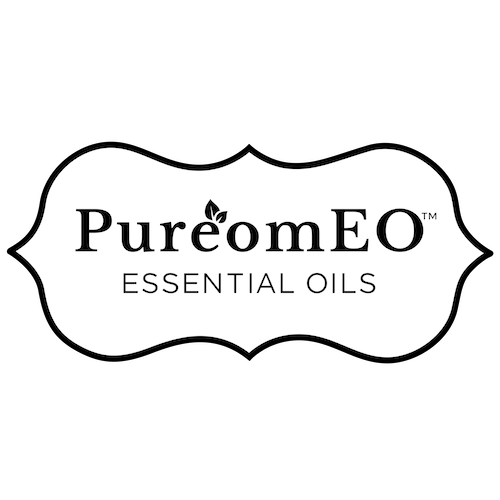
Safe and Effective Alternatives to Conventional Bug Sprays and DEET.
Share

Summer is here, y'all!
And that means camping trips, canoes, cookouts, and....ticks and mosquitoes!
While summer fun means getting outside and having new experiences in nature, bugs aren’t just a nuisance, their bites can also be dangerous. Mosquitoes spread diseases such as Zika Virus, malaria, and West Nile virus. Ticks spread serious illnesses such as Lyme Disease, Anaplasmosis, and Rocky Mountain Spotted Fever.
With consistently warmer-than-average temperatures across the U.S., our tick and mosquito populations are thriving. In fact, the annual number of people sickened by mosquitos or tick bites has more than tripled since 2004, according to the Centers for Disease Control and Prevention (CDC).
When most of us head to the woods, the beach, or the campsite, bug spray is a must. Most insect repellent contains an active ingredient called N,N-Diethyltoluamide, or DEET, which has proven effective at protecting against mosquito bites. According to Consumer Reports, DEET is the most widely used insect repellant in the U.S. But, despite its popularity, it has a lingering reputation for being a toxic chemical.
Is DEET Safe?
The short answer is, “probably, when used correctly, but more research is needed.”
Given all that has yet to be discovered about DEET, skepticism among the general population about DEET’s safety remains strong. A 2015 Consumer Reports survey revealed that only one-third of 2,011 respondents believed the insect repellant products on the market were safe for adults. Some of these fears about DEET come from reports of it causing adverse skin reactions and seizures in children. There are also yet to be confirmed fears that it causes cancer.
According to the CDC, studies have not found an increase in cancer in animals who had liquid deet applied to their skin. A Swedish study did find that men who used insect repellent for 115 days or longer faced an increased risk of developing testicular cancer, but the CDC says that the study was flawed and that the results were not conclusive.
According to the EPA’s website, when used properly, DEET has not yet been identified as having any known risks to human health. However, further research is needed not only on DEET’s impact on overall health, but also on whether or not pregnant women should use DEET. And DEET is responsible for several deaths, but only when it was taken internally, instead of applied topically. So, whatever insect repellent you use, please don’t drink DEET! Or let your children, pets, or other loved ones drink DEET!
DEET’s Minor Side Effects
Most doctors are quick to point out that DEET can become unsafe if you don’t apply it properly or if you apply a higher concentration of it than necessary. They go on to stress that a person could have a bad reaction to DEET if they consume it or breathe it in. It can also cause temporary numbness of your lips or mouth, but this should recede in time. Some people experience rashes or irritated skin after using DEET, and it can irritate your eyes if you spray it too close to your face. The long and short of it is, if DEET isn’t applied responsibly, it can be harmful.
ALTERNATIVES TO DEET
Whereas DEET is certainly effective at keeping mosquitoes away, if you’re looking for something a little more natural, (and better smelling!), there are a host of essential oils that can protect you from stinging, biting, blood-sucking insects.
Of course, humans have long used plants and plant derivatives to repel insects and treat the bites and stings they leave behind. Many natural scents that are appealing to humans actually repel mosquitoes and ticks. Here are some essential oils to try as insect repellents. Be sure to mix these oils with carrier oils, such as jojoba, coconut, or almond oil.
Lavender: Lavender essential oil not only quells anxiety and promotes restful sleep, it also wards off mosquitoes, ticks, flies, and fleas. We’re already feeling calmer.
Peppermint: Peppermint essential oil is one powerful insect repellent! Bugs simply hate the way it smells. It keeps ticks, wasps, aphids, gnats, bed bugs, spiders, ants, beetles, fleas, flies, moths, and roaches away. Peppermint oil mixed with tea tree oil, (and diluted with a carrier oil), is a great soother of insect bites and stings.
Tea Tree: Tea tree oil not only soothes bug bites (see above), but it is also antiparasitic, and is capable of destroying or suppressing the growth of parasites such as fleas, lice, and ticks. All of these bugs hate tea tree’s slightly medicinal, herbaceous aroma.
Basil: Basil essential oil is ideal for summer pest control, especially if you live in a wet climate with lots of lakes, as it both repels mosquitoes and kills their larvae. Additionally, if you suffer from indoor allergies, this study concluded that basil oil can help control dust mites.
Eucalyptus: Eucalyptus, particularly lemon eucalyptus, is the most effective essential oil available for repelling mosquitoes. It’s also kid and pet safe (again, when diluted with a carrier oil). You can use this essential oil to make your own bug spray, and also your own insect-repelling candles.
Bergamot: Bergamot essential oil repels insects, soothes insect bites, and smells like summer in a bottle! Note that bergamot increases photosensitivity, making you more susceptible to sunburn. Use bergamot for nighttime outings, or be vigilant about staying in the shade.
Cedarwood: Cedarwood essential oil is a great natural insect repellent. The proof is in the pudding: cedar chests/ closets are used to repel moths, cedar mulch is used to keep insects away from plants, and flea and tick treatments for pets often include cedar oil. Cedarwood oil repels mosquitoes, ants, flies, fleas, ticks, lice, mites and silverfish. If you're a fan of pine essential oil, this can be mixed with cedarwood for a complete deep woods effect.
Sage, Rosemary, and Thyme: We’re grouping these together, because Simon and Garfunkel had it right: they compliment each other perfectly. Sage oil repels chiggers, lice, and ticks, while providing an uplifting and clarifying scent. Rosemary oil protects against mosquitoes, and similarly boosts mood and refreshes energy. Thyme oil keeps chiggers, houseflies, and ticks away, and in one study, it repelled mosquitoes better than DEET! Combine these three oils, dilute with a carrier oil, and apply directly to your skin. While you may smell like a roast chicken to your hiking buddies, you’ll smell awful to bugs!
Disclaimers
Essential oils should only be used to treat mild bug bites. If you have blistering or overly red/irritated skin, a prolonged fever or headache, excessive pain, or persistent weakness and chills, you should seek medical attention. You should also seek medical attention if your bug bite is showing signs of infection, or if you are presenting symptoms of lyme disease or other tick-borne illnesses.
It is important to always test out a new essential oil on a small patch of skin to make sure that you don’t have a reaction to it. If a rash or burning sensation develops, discontinue use immediately and wash the affected area. Also note that several essential oils, particularly citrus ones such as bergamot, can make your skin more sensitive to UV light. If used, these oils should be washed off before prolonged sun exposure.
PureomEO’s™ Deet Buster: All-Natural Bug Repellent
Are you looking to try some natural insect repellent this summer, but don’t feel up to DIYing your own bug spray? Then try PureomEO’s™ Deet Buster All-Natural Bug Repellent. Our bug spray is a plant-based, cruelty-free product that will not only repel insects, but also soothe bug bites. DEET Buster is made with fractionated coconut oil, which will leave your skin feeling smooth and moisturized.
It also contains a blend of cedarwood, patchouli, ylang ylang, bergamot, catnip, geranium, fir, amyris, rose, labdanum, and vanilla absolutes and essential oils. We’re not quite sure why bugs hate it so much, because it smells fantastic!
Deet Buster is handmade in small batches in Minneapolis, Minnesota with the highest quality ingredients.
For more information about PureomEO’s™ story, mission, and products, visit our website or stop by Jeromeo, located in the historic North Loop neighborhood.
Happy camping!
